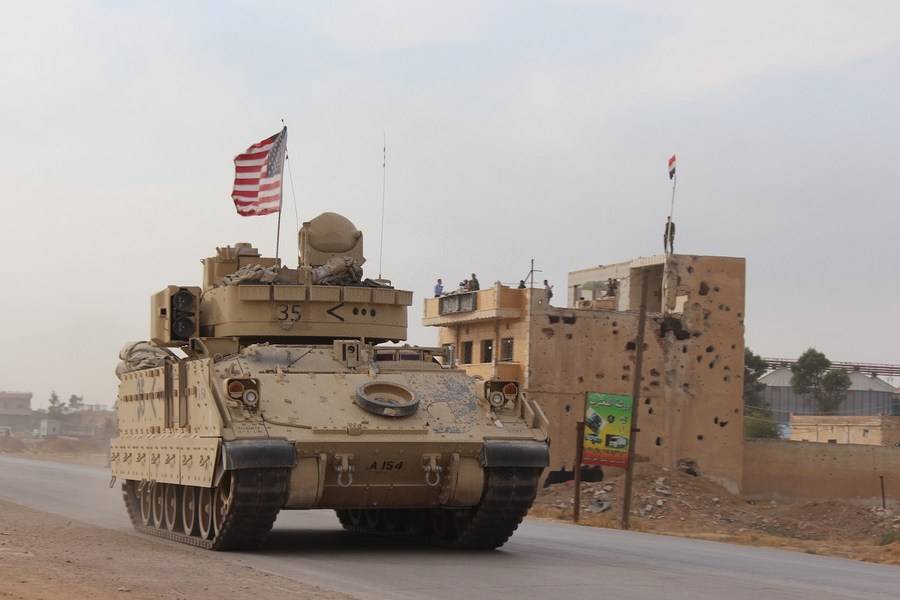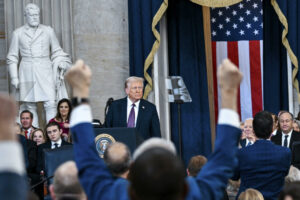U.S. military hegemony over the past decades has brought chaos and conflicts worldwide, trampled on human rights and violated other countries’ sovereignty, while causing damage to itself, experts have said.
The United States has a long and bloody history of military intervention and expansion, causing immense human suffering and instability around the world, said Mohamed A. Elchime, professional associate of political science at Helwan University in Egypt.
“The United States must change its ways and adopt a more peaceful and cooperative approach to foreign policy,” said Elchime.
Contrary to the hegemonic stability theory, the U.S. military hegemony has not brought peace and stability to the world, said Dmitry Suslov, deputy director of the Center for Comprehensive European and International Studies at the National Research University Higher School of Economics in Moscow.
“On the contrary, the so-called unipolar moment was characterized by violations of international law and illegal military interventions,” Suslov argued.
Speaking of the U.S. withdrawal from Afghanistan two years ago, Jalal Bazwan, a lecturer at Kardan University in Kabul, said it damaged America’s reputation in the world.
The United States was seen as a superpower that could project its power and influence around the globe. However, the withdrawal from Afghanistan has shown that the United States is not invincible, and that it can be defeated by determined adversaries, Bazwan said.
“This has led to a decline in confidence in the U.S., and made it more difficult for the U.S. to build alliances and maintain its influence in the world,” he said.
“We are in a transition of the world system, with very profound changes,” noted Gabriel Merino, adjunct professor at the National University of La Plata, Argentina.
“It should be noted that the United States reproduces the pattern of development of the Western powers, combining capitalism, militarism and imperialism,” Merino added.
The experts made the comments upon the release by Xinhua News Agency’s think tank of a report that uncovers the damage and threats of U.S. hegemonic pursuits.
Xinhua Institute on Tuesday published “Origins, Facts and Perils of U.S. Military Hegemony,” which outlines the formation of the U.S. military hegemony, summarizes the means Washington has adopted to maintain it and delves into its perils through facts and data. The institute also held a seminar attended by multiple experts either in person or virtually.
“We see how Washington, today more than ever, is promoting this war-military hegemony, and it is in this way that we applaud the report recently prepared by Xinhua in the part referring to the war-military expenditures of the United States, mainly around new zones of influence that Washington is increasingly trying to control,” said Ignacio Martinez Cortes, a researcher at the National Autonomous University of Mexico.
“Within the United States, military spending is having an increasing impact on taxpayers. And it is at this point that we have this dilemma: U.S. military spending is increasing, but inwardly, U.S. human development is becoming weaker and weaker,” said Cortes.
Since 2001, the United States has launched wars and military operations in more than 80 countries worldwide in the name of “anti-terrorism,” which have directly resulted in the death of about 929,000 people, including 387,000 civilians, and displacing about 38 million people, the report said.
“History has shown us that hegemony in whichever form is neither necessary nor sufficient for global order. In most cases, the quest for hegemony or dominance has resulted in instability among civilizations,” said Dennis Munene Mwaniki, executive director of the China-Africa Center at the Africa Policy Institute.
U.S. military hegemony is bound to backfire. “The pursuit of absolute security, political exclusion and military containment …will not help establish a security framework, but lead to a dilemma and even turmoil,” the report said.
The report is “of historic significance,” said Zivadin Jovanovic, president of Belgrade Forum for a World of Equals.
“I have no doubts that this document will play an important role in strengthening global understanding, solidarity and coordination of efforts toward building a polycentric, more just, inclusive, truly democratic new world order,” Jovanovic said.










